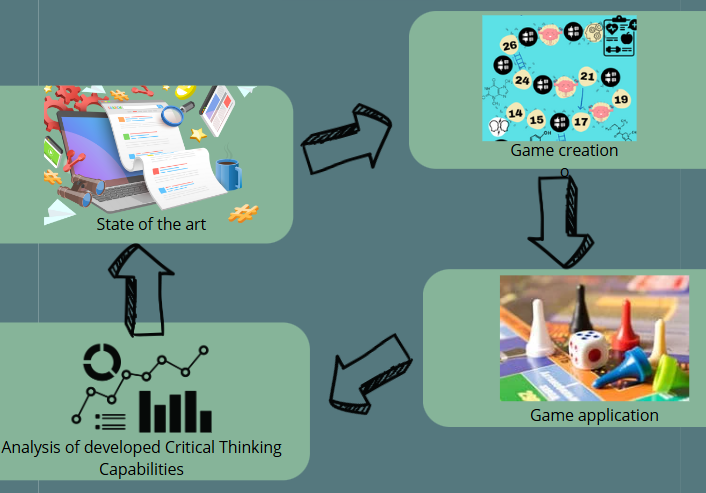TRACKING ORGANIC CHEMISTRY FROM CONTROVERSIAL TOPICS WITH QSC: A PROMOTION TO CRITICAL THINKING”, THE STATE OF THE ART
DOI:
https://doi.org/10.36524/ric.v10i1.2887Keywords:
Games, SSI, Critical Thinking, Organic ChemistryAbstract
It describes the search result, the development of the state of the art, of the methodological proposal that aims to promote critical thinking capabilities through the elaboration and application of a game having organic chemistry as its object of knowledge, entitled “Trail of Organic chemistry a from Controversial Topics: A Promotion to Critical Thinking”. The article presents the descriptors that were searched for in the last five years, as well as the quantity found. The objective of this research is to show the relevance of the methodological proposal by situating the reader on what has already been, as well as what is being studied about the game applied to organic chemistry used as a tool to stimulate critical thinking in students. It was observed that there is a wide use of games in chemistry teaching, with varied methodologies, however, as the selection of descriptors was narrowed, refining the search, publications were reduced. Concludes with this bibliographical survey that although games are widely used as teaching resources, there are few publications aimed at promoting and developing critical thinking in students, especially when combined with organic chemistry content. Therefore, it is extremely important to develop strategies that promote critical thinking skills, both for students, making them active participants in their teaching and learning, and for other teachers to use teaching resources.

Downloads
Published
Issue
Section
License
Copyright (c) 2024 Revista Ifes Ciência

This work is licensed under a Creative Commons Attribution-NonCommercial-NoDerivatives 4.0 International License.
Autores que publicam nesta revista concordam com os seguintes termos:
- Autores mantém os direitos autorais e concedem à revista o direito de primeira publicação, com o trabalho simultaneamente licenciado sob a Licença Creative Commons Attribution que permite o compartilhamento do trabalho com reconhecimento da autoria e publicação inicial nesta revista.
b. Autores têm permissão e são estimulados a publicar e distribuir seu trabalho online (ex.: em repositórios institucionais ou na sua página pessoal) a qualquer ponto antes ou durante o processo editorial, já que isso pode gerar alterações produtivas, bem como aumentar o impacto e a citação do trabalho publicado (Veja O Efeito do Acesso Livre).


